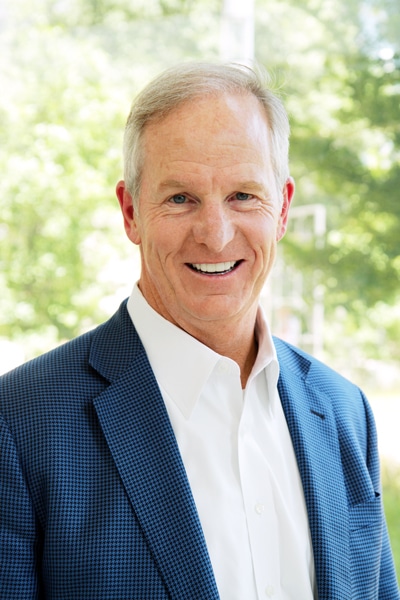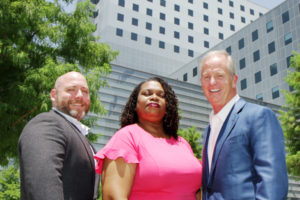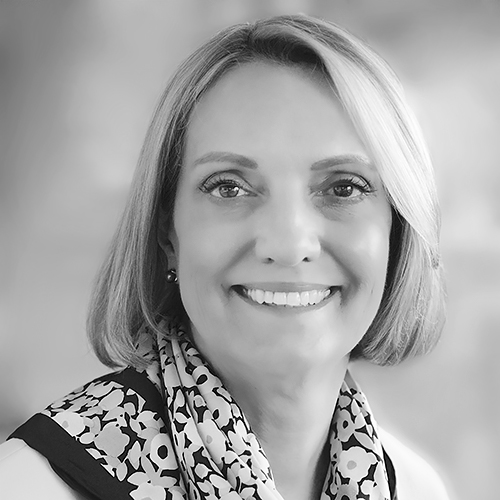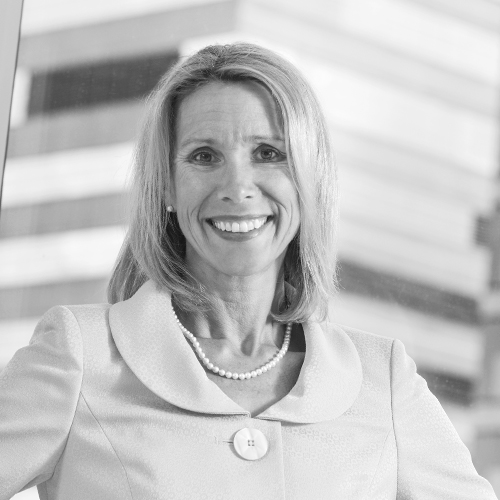More than one million patients visit the Parkland Health & Hospital System each year in Dallas, where Paul Leslie continues its century-long tradition of excellence in patient safety and care. And his award-winning legal team is on the front line of progress as the academic medical center and healthcare operation serves an increasingly diverse population.
“It’s not very often that a lawyer can say, ‘I’m doing God’s work,’” says Leslie, chuckling. “We’re providing state-of-the-art care for Dallas County. The people at Parkland, and in our legal department, consider it a calling.”

As one of the largest public hospital systems in the United States, Parkland includes thirty-four clinics in the surrounding community, a brand new state-of-the-art 870 licensed bed acute care hospital, a Level I Trauma Center, a Level III Neonatal Intensive Care Unit, the second largest civilian burn center in the country, a community health plan, and an independent center for clinical innovation. It also houses the primary teaching hospital for the University of Texas Southwestern Medical Center. “It does not get any more complex and challenging than managing the legal affairs of a large academic medical center that serves as the region’s safety net hospital,” Leslie says.
Leslie, executive vice president and general counsel, is a linchpin within all those moving parts. His legal team—comprising nine attorneys and nineteen support professionals—ensures the system stays within the guardrails of what’s legal and appropriate from a regulatory standpoint amid the complex regulations that fill up a library at its headquarters.
“Lawyers are strategically important to effective healthcare operations,” Leslie says. “You can’t have any sophisticated healthcare practice in the United States today without having legal expertise at the table to help guide the decision-making in just about everything.”
Leslie considers that proximity a primary motivator behind his decision to go in-house in the healthcare space. He joined Parkland in 2010 as interim general counsel before former Parkland CEO Ron Anderson requested he come aboard officially a year later. Prior to Parkland, Leslie shaped his thirty-one year legal career as Tenet Healthcare’s associate general counsel and as a partner at Dallas-based law firms Taber Estes Thorne & Carr and Gardere & Wynne.
The general counsel leads his department based on the values he gleaned from the mentorship he received earlier in his career. He describes one of these influential mentors, former trial lawyer Webber Beall, as a true Southern gentleman with impeccable ethics and a great moral compass.
“Sometimes young lawyers get tempted to cut ethical corners or to do something fast and loose,” Leslie says. “Beall demonstrated that doing what’s right even when it might cause you or your client discomfort was always the right course of action.”
“Lawyers are strategically important to effective healthcare operations. You can’t have any sophisticated healthcare practice in the United States today without having legal expertise at the table to help guide the decision-making in just about everything.”
Leslie also credits another early career experience as the foundation for his leadership mind-set. He clerked for Texas Supreme Court Justice James A. Baker at the Dallas Court of Appeals after law school—he earned a juris doctor from St. Mary’s University after a bachelor’s degree in financial management from Texas Christian University.
“I was surrounded by folks that exude integrity,” Leslie says. “You have to do what you say you will do, or be fully transparent as to why circumstances change. Associate with people that create a culture that walks the talk. Lots of people get caught up chasing money, but they should chase enthusiasm. Pursue the opportunities that truly excite you each step of the way and you will have a marvelous and rewarding career.”
Leslie chased his enthusiasm to Parkland, where he now he leads an award-winning legal team. Last year, the Texas General Counsel Forum presented Parkland’s legal affairs department with the 2017 Magna Stella award for Excellence in Diversity. Leslie also received the Forum’s 2016 Magna Stella award as the outstanding General Counsel in the Non-Profit and Government Agency category. The Forum comprises general counsel and senior managing counsel from more than half of the Texas-based Fortune 500 companies.
His team created a database to track eligible minority- and women-owned business enterprises (MWBEs) and hosts “Let’s Talk Business” workshops with Parkland’s supply chain team to diversify the company’s workforce and vendor network. In 2016, 17.9 percent of the outside legal spend went to MWBE-certified law firms. In 2017, that number increased to 22.7 percent. Although his entire department worked hard and values diversity, Leslie credits his deputy general counsel, Nneka Egbuniwe, and senior associate general counsel, Jay Balfour, as being particularly strong forces behind the department’s success. “Achieving success in our diversity initiatives was only possible with all members of the team being fully engaged and supportive of their importance.”

Parkland’s organic progression on the diversity front mirrors the national trajectory, according to the general counsel. As population demographics shift, he explains, companies across industries are recognizing the growing need to serve diverse customers through the cultural competencies of a diverse workforce. “You really are at a disadvantage if you do not understand that you have to engage and show that you value your patients in a way that they culturally understand and appreciate. There is no way that can be effectively done without a diverse workforce and supportive leadership structure.” Parkland’s chief executive officer, Frederick P. Cerise, MD., is a particularly strong champion of diversity, Leslie noted. “We could not have been as successful without Fred’s genuine engagement and support,” he says.
Currently, Parkland’s legal team is 76 percent female and 24 percent male; 48 percent white; 40 percent African-American; 8 percent Hispanic; and 4 percent Asian. And for Leslie, diversity applies beyond gender and race to backgrounds and personalities as well, who balances an equal number of extroverts and introverts within the department.
“When you understand the ways people are wired differently, you understand what they need to be successful,” Leslie says. “That training has helped the department become cohesive and work extremely well together. The success of the department is not any one person’s—it’s the whole team’s success.”
At time of publication, Paul Leslie was no longer with Parkland Hospital.


